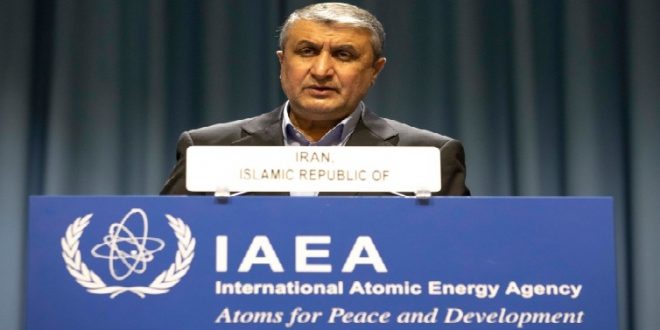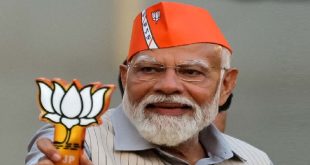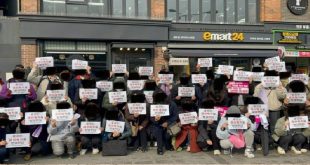08-06-2022
TEHRAN: Iran’s nuclear chief and other senior officials have questioned whether the global atomic watchdog is politically compromised, as Western powers, backed by Israel, introduce a resolution to censure Iran over its nuclear program.
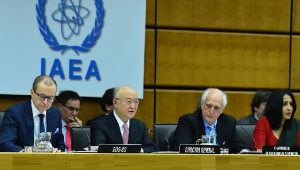 Mohammad Eslami, the head of the Atomic Energy Organization of Iran (AEOI), said in an interview with Al Jazeera on Monday that the International Atomic Energy Agency (IAEA) needs to put a stop to “infiltration by Iran’s enemies” in its operations.
Mohammad Eslami, the head of the Atomic Energy Organization of Iran (AEOI), said in an interview with Al Jazeera on Monday that the International Atomic Energy Agency (IAEA) needs to put a stop to “infiltration by Iran’s enemies” in its operations.
“How it is possible that confidential reports of an international organization are published in the media even before the official recipients read them?” he said in reference to IAEA reports detailing Iran’s nuclear program that are regularly leaked to Western media.
Those reports have said that the agency is not satisfied with answers Iran has provided to the agency’s probes of three sites in Turquzabad, Varamin and Marivan where nuclear particles dating back several decades have been found but Eslami said Iran has provided “accurate” answers, and that the IAEA has so far lacked the “will” required to declare Iran’s answers convincing.
Eslami said the probes were based on “fake documents and accounts” provided by Iran’s enemies, led by Israel, and that Iran had offered its voluntary cooperation.
The nuclear chief added that the agency’s focus on Iran was discriminatory, as Iran accounted for  only a small amount of global nuclear activity, but had to undergo what he said was over a quarter of all agency monitoring activity, which amounts to hundreds of inspections per year.
only a small amount of global nuclear activity, but had to undergo what he said was over a quarter of all agency monitoring activity, which amounts to hundreds of inspections per year.
Western powers claim that the inspections are necessary to prevent Iran from building a nuclear weapon, something Iran categorically denies.
Eslami criticized a trip last week by the IAEA’s director general Rafael Grossi to Israel.
“How many inspections is the agency doing in that country? Is it even allowed to have an inspection?”
Eslami also responded to Israeli Prime Minister Naftali Bennett, who had said that Israel reserved the right for “self-defence” should the IAEA’s diplomacy with Iran fail.
“This is the culture that’s dominant now and these interferences have shown a clear movement against the Islamic Republic of Iran.”
IAEA resolution
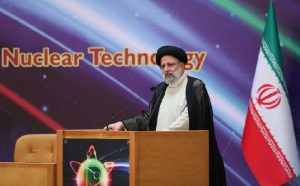 Meanwhile, the United States and the E3 France, Germany and the United Kingdom have submitted a resolution condemning Iran’s nuclear advances and “insufficient cooperation” with the agency at the Board of Governors meetings that began on Monday.
Meanwhile, the United States and the E3 France, Germany and the United Kingdom have submitted a resolution condemning Iran’s nuclear advances and “insufficient cooperation” with the agency at the Board of Governors meetings that began on Monday.
A vote on the resolution will likely be taken on Wednesday.
The Western allies had so far refrained from carrying out the move as they perceived that it could hurt the stalled Vienna nuclear talks aimed at restoring the 2015 nuclear deal.
The resolution is still thought to exclude a recommendation to take Iran’s case to the United Nations Security Council as it is believed that it would further escalate an already tense situation.
Iran’s foreign ministry has said the country would respond based on what happens at the board meeting, without elaborating what that response could entail.
Russia, which along with China was also part of the nuclear deal, has already expressed its opposition to a resolution. (Int’l Monitoring Desk)
 Pressmediaofindia
Pressmediaofindia
